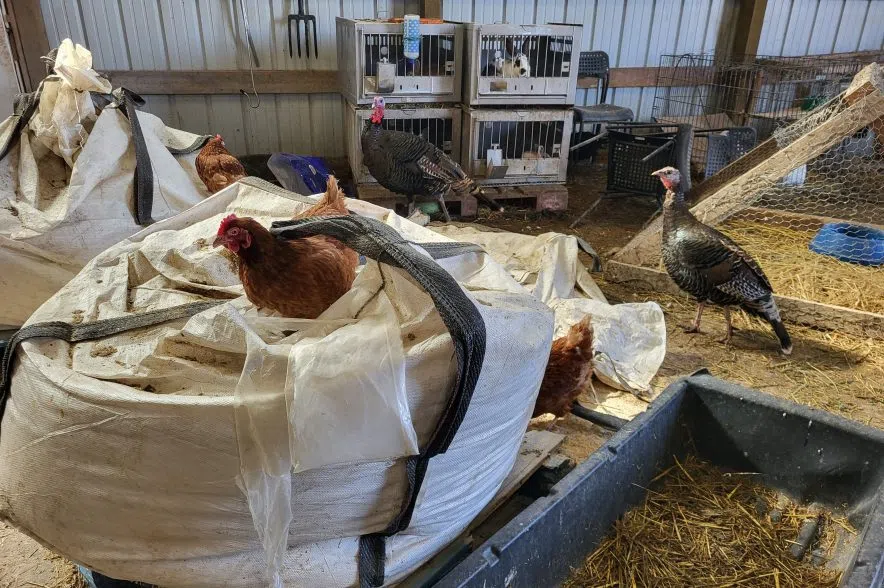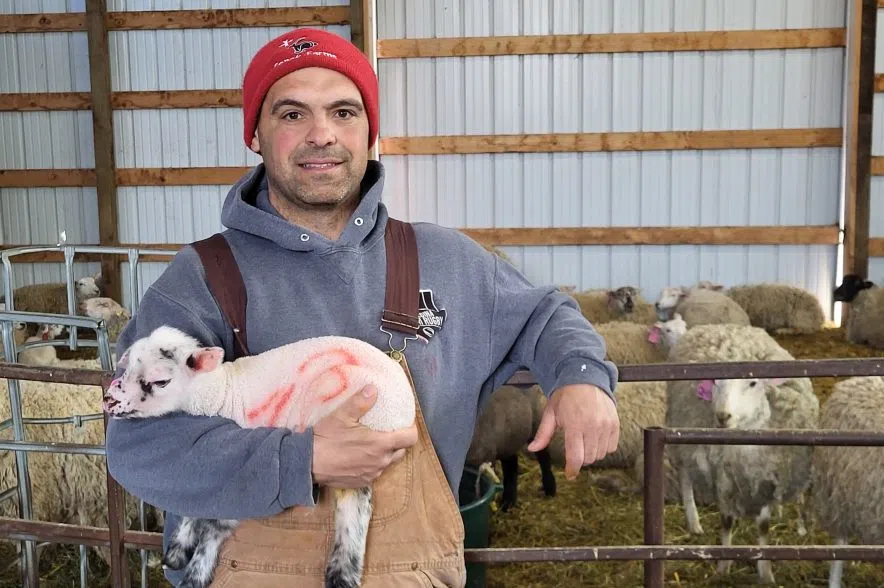Global trade and tariffs are some of the key issues Saskatchewan agricultural producers are paying attention to ahead of the 2025 federal election.
Farmers are looking for certainty and stability as Canada is currently embroiled in a trade war with both China and the U.S.
Read More:
- Tories expected to release platform as federal election campaign nears its end
- Conservatives vow not to impose a home equity tax as Liberals, NDP talk health care
- ‘Democracy at work’: Good voter turnout in Saskatoon at advance polls
“Everyone’s talking about tariffs. There’s tariffs (from) the United States, but it’s the tariffs (from) China that’s an extreme concern for a lot of grain producers, especially in this province,” said Josef Buttigieg, owner of Fenek Farms.
Will Robbins had a different view. For him, it’s the U.S. tariffs which are causing the greatest amount of uncertainty.
“I think the American tariffs are actually a bigger worry in terms of total dollar value for the agricultural industry and the prairie provinces,” Robbins said.
“They’re both a worry but I actually think the American tariff situation being less stable and maybe less logical is more of a cause for concern.”
Robbins also noted that it was Canada that instigated the trade war with China, unlike the trade war with the U.S.
Canada imposed a 100 per cent tariff on Chinese electric vehicles and 25 per cent levy on Chinese steel and aluminum, leading China to retaliate by imposing a 100 per cent tariff on canola oil, canola meal and peas, along with 25 per cent tariffs on some pork, fish and seafood products.
Robbins said that whichever party wins the election, he hopes it does not sell out Canadian farmers while negotiating international trade deals. In particular, Robbins said he’s worried about Canadian farmers being potentially undercut by “product dumping” from other countries.

Josef Buttigieg said he’d like to see more emphasis on removing interprovincial trade barriers ahead of the election on Monday. (Daniel Reech/980 CJME)
Shaun Haney, host of RealAg on the Weekend, said farmers want to see concrete measures addressing the issues around tariffs.
“We can only talk about some of these things for so long,” Haney said.
“So if we are actually serious, whether it’s reducing some of the trade barriers on interprovincial trade – that’s maybe working on some of the trade infrastructure to try to get product from, say, the middle of Saskatchewan to the Port of Vancouver and and on a boat into the ocean – we have to have some action.”
Interprovincial trade barriers
Although international and global trade is important, Buttigieg said he also hopes the incoming federal government removes barriers around interprovincial trade.
He raises sheep on his mixed farm, and said producers of sheep products from Saskatchewan and other areas were hit with licensing fees when attempting to sell their products in Ontario. The implementation of the fees was overturned by the Agriculture, Food and Rural Affairs Appeal Tribunal.
“I thought it was ludicrous because I thought, you know, ‘elbows up,’ everyone in Canada for Canada and all of that type of thing, but it’s not the case at all,” Buttigieg said.
“I think, needs to stop, especially if you want growth in the country here.”
Buttigieg said he also wanted to see the federal and provincial governments take more thorough and well-coordinated measures to address the spread of avian flu.
Other issues
Robbins said there are other long-term issues that always press farmers.
“The massive rise in productivity in farms in the last 50 years hasn’t really translated into corresponding income rise,” he said.
“A lot of that income gain from that productivity has been siphoned off in other parts of the ag sector.”
Robbins said grain buyers and large companies like Cargill are doing well, but farmers aren’t benefiting from growing more per acre.
Robbins also said he’d like to see the federal government provide support or training to farmers who are transitioning to more sustainable practices, given the climate uncertainty affecting the industry’s future.
Supply management system
Robbins and Buttigieg find themselves on opposite sides of the quota management system.
First authorized in the early 1970s, the system aims to make sure prices for supply-managed farms are stable and predictable. The products controlled under the policy are dairy, poultry and eggs.
Buttigieg argued that supply management stifles the efforts of smaller operations such as his own, and runs the risk of having farming be concentrated in the hands of too few people.
Robbins, on the other hand, said it’s more effective than the free market in ensuring income gains for farmers in the program. He also expressed concern over the U.S. potentially pushing to remove the system in exchange for tariff relief.
“Any time there’s any sort of trade negotiation or discussion about food prices, supply management always comes up,” Haney said.
“Right now this is a big topic, because in the last renegotiation of the NAFTA agreement in the first Trump administration, there was a lot of talk about ‘Were the Americans gonna come after supply management?’ Try to break down the pillars of it to try to get more U.S. dairy products into the country. That ended up not being the case.”
Haney said whether or not the U.S. will follow through with that demand in Donald Trump’s second term remains unknown. He said it will depend on what the president’s actual goals are in this trade war.
Election day is scheduled for Monday.











